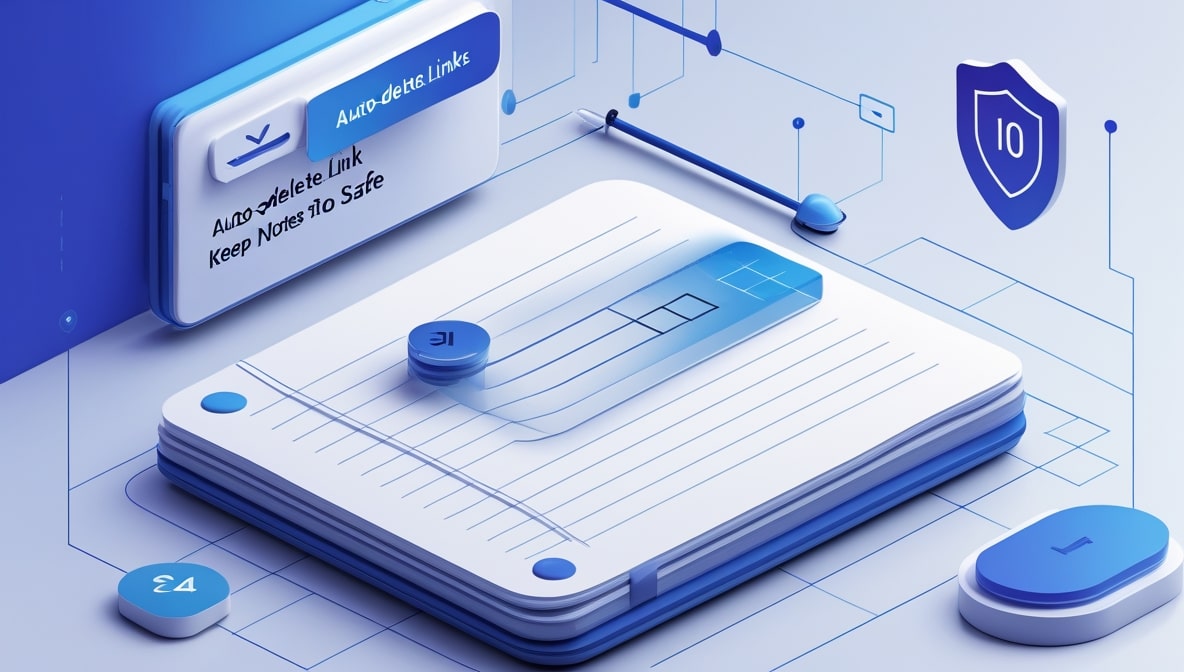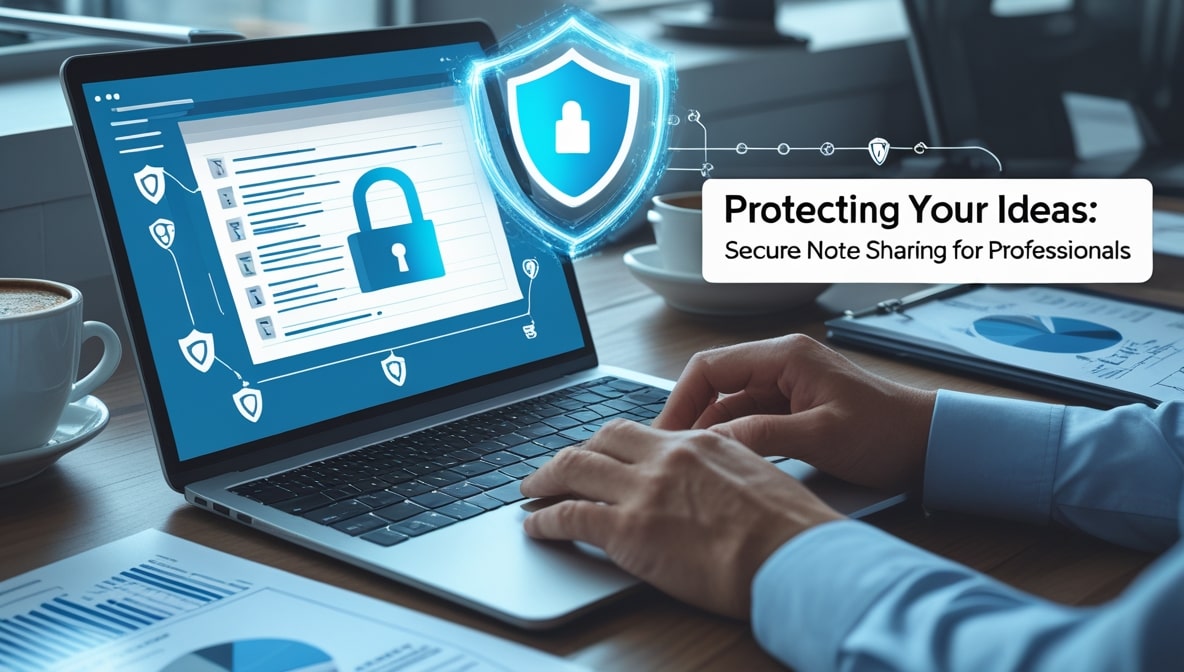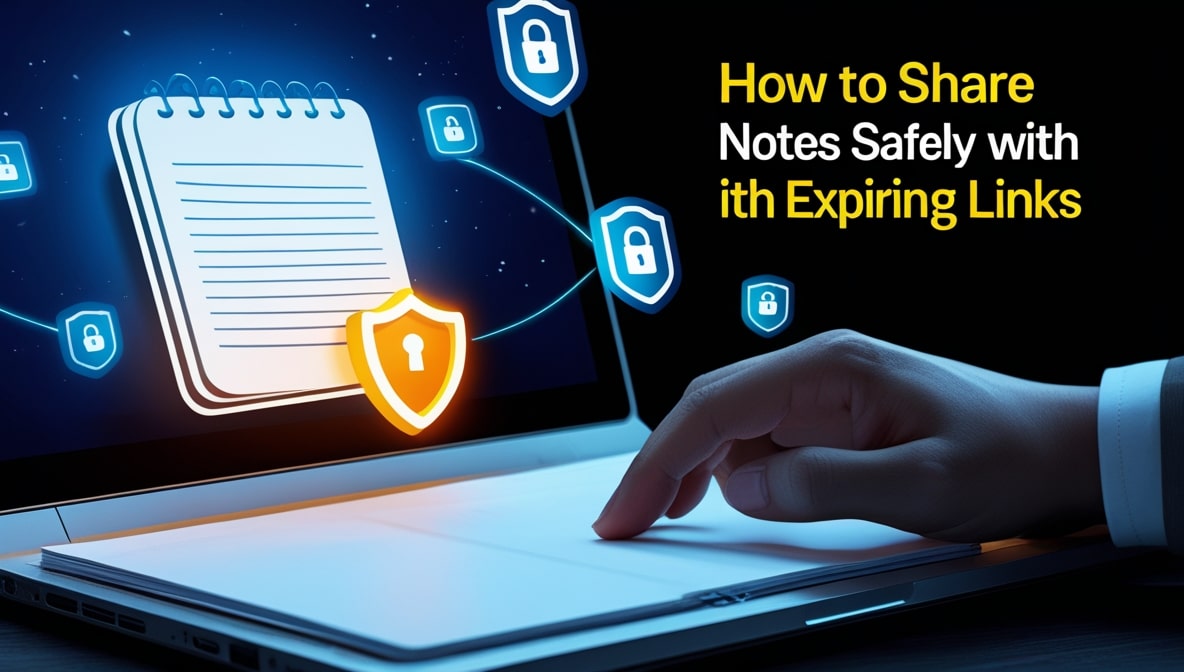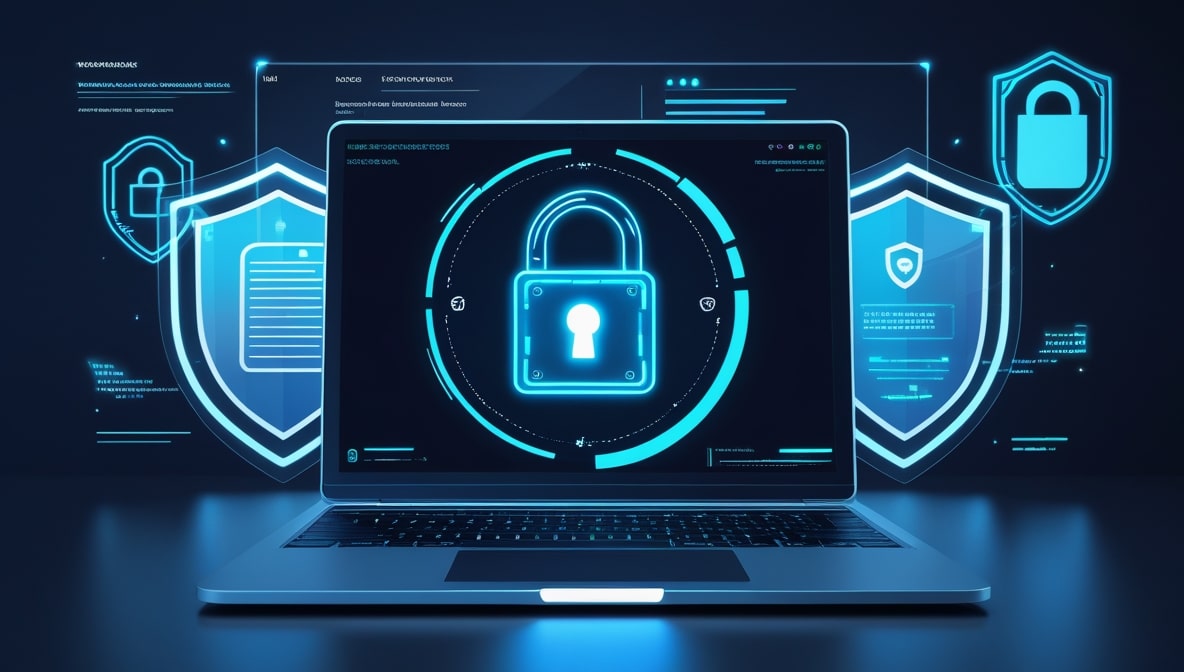Sharing Notes Online Without Compromising Privacy
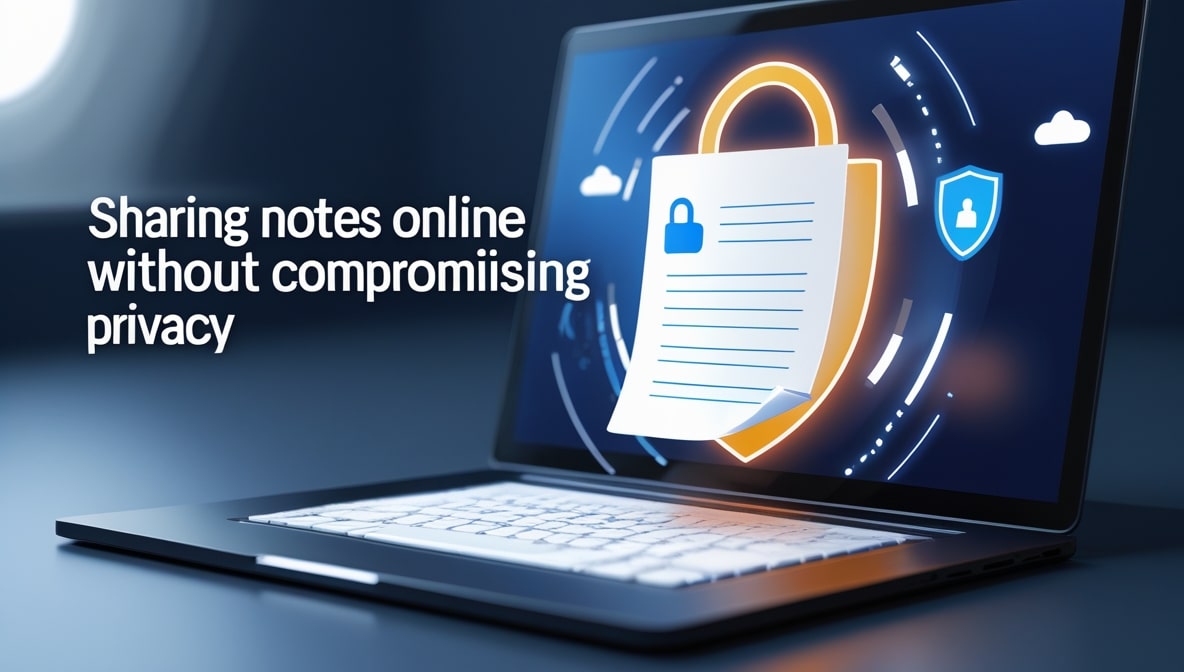
It’s a little past five in the evening on a Sunday here in Colombo. The intense heat of the day has finally given way to a softer, golden light, and it’s that time of the week for winding down, for connecting with friends and family. A lot of that connecting happens online, doesn’t it? We share little bits and pieces of our lives through our screens. A funny story, a link to an interesting article, a quick address for a meet-up. It's become second nature to just copy, paste, and send.
The convenience is incredible. But have you ever stopped to think about what happens to that information after you hit send? Where does it live? Who can see it? In our rush to share, we often treat our private information with a casualness we’d never dream of in the real world. We’re essentially shouting our secrets in a crowded digital room and just hoping for the best. It doesn't have to be this way. It is entirely possible to enjoy the instant connectivity of the online world without sacrificing your fundamental right to privacy. It just requires a little bit of intention and the right set of tools.
The Haunting Permanence of Your Chat History
Think about your primary chat application, whether it’s WhatsApp, Messenger, or Slack. It’s more than just a messaging app; it’s a living archive of your conversations. It’s where you’re your most casual, unfiltered self. And because it’s so comfortable, it’s where we often share sensitive information without a second thought a password for a shared account, a friend’s new phone number, details about a private medical issue, or a confidential business idea.
The problem is that these chat logs have a perfect, searchable, and permanent memory. That piece of sensitive data you shared two years ago is still sitting there, a ticking time bomb waiting for a phone to be lost or an account to be compromised. Using these communication tools as a permanent storage locker for private notes is a huge, and completely unnecessary, risk.
Why Your Email Is More Like a Postcard Than a Sealed Letter
For anything slightly more formal, we tend to turn to email. It feels more official, more secure. But in most cases, that feeling is a dangerous illusion. A standard email is not a sealed, private letter. It’s much more like a postcard. As it travels from your computer to your recipient's, it passes through multiple servers, and at many of these points, it can be read by automated systems or, potentially, by human eyes.
The attachments you send, like a document with sensitive notes, don’t just go to the recipient; copies are stored on your sent-mail server and their incoming-mail server, indefinitely. Unless you are using a specialized, encrypted email service, you have to assume that anything you send is not truly private. Using your standard email to send sensitive information is like writing your secrets on a postcard and hoping no one in the postal service bothers to read it.
Your First and Most Important Line of Defense: Encryption
So, if chat and email are out, what’s the solution? The absolute, non-negotiable starting point for any kind of secure sharing is end-to-end encryption. It’s a term that gets thrown around a lot, but the concept is beautifully simple. Imagine you write your note, and before it even leaves your computer, you lock it in a super-strong digital box. The only key that can open this box is held by you and your intended recipient.
The note travels across the internet as this locked box. Even the company that runs the Online Notepad service can’t peek inside. They can see that a box is being transferred, but they have absolutely no idea what’s in it. This is what true end-to-end encryption means, and in 2025, it should be the default standard for any platform you trust with your private information. It’s the technological guarantee that your private notes stay private.
The Simple Magic of the Self-Destructing Message
Okay, so your note is encrypted. That's fantastic. But you can go a step further to ensure your privacy. Think about the nature of most of the information we share. Is it meant to be relevant forever? Usually not. This is where expiring links, or auto-delete notes, become an incredibly smart tool. A secure Online Notepad will allow you to share a note and give it a built-in expiration date. For example, you have a friend visiting your apartment.
You can send them the Wi-Fi password in a note that is set to self-destruct in three hours. They get the information they need, and then the link to that information simply ceases to exist. There’s no risk of that password floating around in their chat history for years. This is about practicing good digital hygiene. It’s about matching the lifespan of the data to its actual period of relevance.
For Your Eyes Only: The Superpower of a One-Time View Link
For the most sensitive information, you can deploy an even more powerful feature: the one-time view link. This is the digital equivalent of passing someone a note that immediately bursts into flames after they’ve read it. It is the ultimate tool for "for your eyes only" communication. Let's say you need to share a bank account number with a family member or a secret confirmation code for a booking.
You can put it in a note and set the link to expire after exactly one view. The moment the recipient clicks the link and sees the information, the link is permanently destroyed. They can’t refresh the page to see it again. They can’t forward the link to someone else. It provides absolute certainty that the information was seen once, and only once, by the intended person. It’s a level of control that is simply impossible to achieve with traditional sharing methods.
The Two-Key System: Combining Links with Passwords
If you want to add another robust layer of security, you can use a classic intelligence agency trick: the two-channel system. A top-tier Online Notepad will allow you to add a password to your encrypted, expiring note. Now, for someone to access the information, they need two things: the unique link you created, and the password you set. The smart way to handle this is to send these two pieces of information through two different channels.
For example, you could email your colleague the link to the note, but then send them the password in a text message. This means that even if a hacker were to compromise their email account and find the link, it would be completely useless to them without the password that you sent to their phone. It’s a simple, practical step that dramatically increases the security of your shared notes.
The Quiet Benefit of Sharing Anonymously
Think about all the online accounts you’ve been forced to create over the years. Every new service seems to demand your email address, your name, and a password. This creates a massive digital footprint that can be tracked and compromised. One of the most user-respecting features of a great Online Notepad is the ability to do all of this create an encrypted, password-protected, self-destructing note without ever having to sign up for an account.
For a quick, one-off secure share, you shouldn't have to hand over your personal information. This anonymous functionality is a powerful statement about privacy. It shows that the tool is designed to serve your needs, not to harvest your data. It allows you to share securely while leaving no trace, which is the essence of true digital privacy.
It’s Not Paranoia; It’s Simply Being in Control
You will always hear someone say, "Why bother with all this? I have nothing to hide." But this argument completely misses the point of privacy. You have curtains on your windows, don't you? It's not because you're doing something illegal inside; it's because you believe you have the fundamental right to choose who gets to look into your home and when. Privacy isn’t about hiding wrongdoing; it's about control.
It’s the right to manage your own information and to decide who you share it with. Using secure tools to share your notes isn't a sign of paranoia. It’s a sign of digital intelligence. It’s the modern-day equivalent of choosing to have a private conversation in a quiet room instead of shouting your secrets in a crowded marketplace. It’s simply being a responsible steward of your own personal data.
In the end, we don't have to choose between the incredible convenience of the online world and our right to privacy. We can, and should, have both. It just requires us to be a little more mindful, to pause for a second before we hit send and ask, "What is the smartest, safest way to share this?" Ditching the insecure habits of pasting sensitive data into chats and emails is the first step. The next is embracing tools that are purpose-built for the task. A secure Online Notepad gives you the power to share intentionally, with encryption as your shield, expiration as your cleanup crew, and passwords as your extra lock. It allows you to communicate with confidence, knowing that your private thoughts will remain just that: private.
